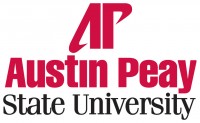 Clarksville, TN – Dr. Ann Assad, associate professor of mathematics and statistics at Austin Peay State University, set a stack of children’s literature books on the table. She flipped briefly through the titles, pausing occasionally to admire the bright, colorful covers of the books.
Clarksville, TN – Dr. Ann Assad, associate professor of mathematics and statistics at Austin Peay State University, set a stack of children’s literature books on the table. She flipped briefly through the titles, pausing occasionally to admire the bright, colorful covers of the books.
“We need to engage children in wanting to learn, wanting to solve problems,” she said. “One way we can interest them is through literature.”
That’s not such a groundbreaking statement when talking about a language arts class, but Assad was specifically referring to something completely different – a mathematics class. She, along with APSU assistant professor of education Dr. Lauren Wells, wants to use children’s literature to boost elementary school students’ science and mathematics comprehension skills, and a new $138,202 grant is helping them do just that.
The grant, funded through the state’s Race to the Top initiative, is allowing the professors to create the 18-monthlong Momentum: Building Capacity for Change through Connections program, which will provide daylong workshops for selected area teachers to learn how to incorporate children’s literature into their math and science lessons.
“We’re going to have the teachers who participate learn to use children’s literature as a springboard for a lot of different mathematics problems,” Wells said. “They’ll take what they learn here back to the classroom and then bring the results back here.”
The program will begin in August, and it currently has 30 slots open for third- through fifth-grade teachers. Participants will meet intermittently on Saturdays at APSU throughout the year and for a weeklong academy during the summer of 2012. They’ll receive a stipend, materials such as children’s literature books to take back to their classrooms and graduate course credit in either reading or math.
Teachers enrolled in the program will also learn how to use fictional works, such as “If You Hopped Like a Frog,” to create mathematical problems for students. One example would be to take the phrase “crane your neck,” and ask students, based on their height, how long would their necks be if they had one similar to a 4-foot tall crane.
“We want to use the literature to help students engage in problem solving,” Assad said. “The research pretty much tells us, if a student doesn’t learn to problem solve, they’re really not learning mathematics the way they should. The exercises you once did in math books in school were not problems, they were exercises. Someone showed you how to divide and you knew you were supposed to divide. A problem requires you to go out and pull all your knowledge together and make a decision.”
The new Momentum program will also assist teachers in integrating science and technology into mathematics curricula. For that reason, the workshops will be held in the University’s new STEM (Science, Technology, Engineering and Mathematics) Center on campus, making use of that state-of-the-art facility’s resources. And what is learned could have an impact on how these subjects are taught in area schools.
“It’s important for children, students, to see these connections and not have everything so segmented,” Wells said. “If they can see the richness of the curriculum through the integration of these various aspects, I think that’s very beneficial for students and teachers.”
For more information on the new Momentum program, contact Wells at wellsl@apsu.edu or Assad at assadd@apsu.edu.


